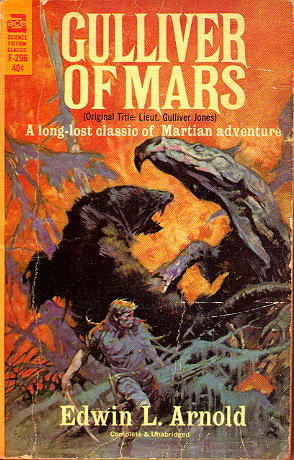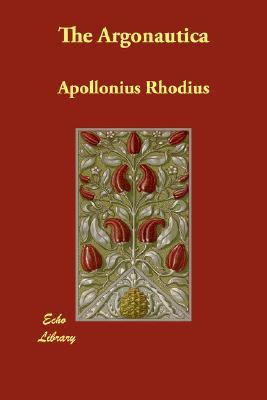LovelyMay
Stories
93
Chapters
1,516
Words
6.7 M
Comments
0
Reading
23 d, 5 h
-
 Chapter I begins not with triumph but with quiet discontent. The protagonist, Lieutenant Gulliver Jones, is weighed down by the burden of unrealized dreams and the ache of a love that never fully bloomed. Walking the rain-washed streets of New York, he drifts through alleyways as if the city itself has grown tired of offering him meaning. The night seems ordinary, dreary even, until his path crosses with a figure slumped in the shadows. This old man, clad in unfamiliar garb and cradling a thick,…
Chapter I begins not with triumph but with quiet discontent. The protagonist, Lieutenant Gulliver Jones, is weighed down by the burden of unrealized dreams and the ache of a love that never fully bloomed. Walking the rain-washed streets of New York, he drifts through alleyways as if the city itself has grown tired of offering him meaning. The night seems ordinary, dreary even, until his path crosses with a figure slumped in the shadows. This old man, clad in unfamiliar garb and cradling a thick,…-
79.4 K • Ongoing
-
-
 Chapter VI invites readers into a quiet but profound turning point as the protagonist contemplates his place on a world that dazzles yet alienates him. After the intense spectacle of a magical incident, he is left adrift in a place that seems both dreamlike and indifferent. The grandeur of the Martian palace offers no comfort, only a reminder of what he’s lost. Mars, for all its elegance, feels lifeless without warmth or meaning. The people, beautiful and eternal, seem untouched by emotion. He longs for…
Chapter VI invites readers into a quiet but profound turning point as the protagonist contemplates his place on a world that dazzles yet alienates him. After the intense spectacle of a magical incident, he is left adrift in a place that seems both dreamlike and indifferent. The grandeur of the Martian palace offers no comfort, only a reminder of what he’s lost. Mars, for all its elegance, feels lifeless without warmth or meaning. The people, beautiful and eternal, seem untouched by emotion. He longs for…-
79.4 K • Ongoing
-
-
 Chapter III begins with the protagonist regaining consciousness under Martian skies, greeted by An’s gentle teasing. Blaming his dizziness on a lack of local wine, An urges him to rise and explore the strange new world. The two begin their journey across the landscape, which gleams with canals and is dotted by radiant gardens filled with carefree Martians. The environment feels peaceful, even too serene, like a dream in motion. People engage in leisure rather than labor, their laughter echoing between…
Chapter III begins with the protagonist regaining consciousness under Martian skies, greeted by An’s gentle teasing. Blaming his dizziness on a lack of local wine, An urges him to rise and explore the strange new world. The two begin their journey across the landscape, which gleams with canals and is dotted by radiant gardens filled with carefree Martians. The environment feels peaceful, even too serene, like a dream in motion. People engage in leisure rather than labor, their laughter echoing between…-
79.4 K • Ongoing
-
-
 Chapter IX opens with the protagonist stepping into an alien wilderness shaped by murky lagoons, gnarled roots, and dense vegetation clinging to the edge of low, marshy islands. He finds no immediate signs of life, only the silence broken occasionally by the faint rustling of the underbrush. As dusk slips in, the forest’s shadows stretch wider, and the air becomes thick with unseen movement and ominous cries. Seeking a semblance of safety, he settles under a tree, trying to rest though each snap of a…
Chapter IX opens with the protagonist stepping into an alien wilderness shaped by murky lagoons, gnarled roots, and dense vegetation clinging to the edge of low, marshy islands. He finds no immediate signs of life, only the silence broken occasionally by the faint rustling of the underbrush. As dusk slips in, the forest’s shadows stretch wider, and the air becomes thick with unseen movement and ominous cries. Seeking a semblance of safety, he settles under a tree, trying to rest though each snap of a…-
79.4 K • Ongoing
-
-
 Chapter VIII begins with the protagonist stirring from uneasy sleep, his head clouded by the wine and memories of a bizarre feast filled with unsettling visions. The lingering aroma of fruit and the ache of bruises confirm that the revelry was no mere dream. Heru’s face, once seen among candlelit laughter, now haunts his thoughts as he pieces together the truth. The remnants of joy have turned to dread as he realizes she may be in danger. The mood shifts quickly from hazy nostalgia to urgent concern.…
Chapter VIII begins with the protagonist stirring from uneasy sleep, his head clouded by the wine and memories of a bizarre feast filled with unsettling visions. The lingering aroma of fruit and the ache of bruises confirm that the revelry was no mere dream. Heru’s face, once seen among candlelit laughter, now haunts his thoughts as he pieces together the truth. The remnants of joy have turned to dread as he realizes she may be in danger. The mood shifts quickly from hazy nostalgia to urgent concern.…-
79.4 K • Ongoing
-
-
 Chapter VII opens with a shift in the protagonist’s inner world as he begins to grasp the surreal rhythm of life on Mars. Though initially disoriented by the foreign customs and lighthearted spirit of the Martians, a quiet admiration grows within him. Their culture, carefree and untouched by age or death, contrasts deeply with Earth’s grave outlook. It’s not just fascination; there’s a creeping sense of loss for his former reality. But the Martians’ playful way of living gradually softens this…
Chapter VII opens with a shift in the protagonist’s inner world as he begins to grasp the surreal rhythm of life on Mars. Though initially disoriented by the foreign customs and lighthearted spirit of the Martians, a quiet admiration grows within him. Their culture, carefree and untouched by age or death, contrasts deeply with Earth’s grave outlook. It’s not just fascination; there’s a creeping sense of loss for his former reality. But the Martians’ playful way of living gradually softens this…-
79.4 K • Ongoing
-
-
 Chapter IV – Gulliver of Mars begins with a moment of stillness. The protagonist wakes in an elegant Martian chamber, surrounded by silence and strange luxury. As he steps out onto a high terrace, he takes in the vivid colors of sunrise spilling over a city unlike any he’s known. Below, people gather for food in a spectacle of shared ease, but the labor is clearly managed by a distinct group in yellow attire. These slaves, quiet and efficient, form the backbone of a culture that has otherwise…
Chapter IV – Gulliver of Mars begins with a moment of stillness. The protagonist wakes in an elegant Martian chamber, surrounded by silence and strange luxury. As he steps out onto a high terrace, he takes in the vivid colors of sunrise spilling over a city unlike any he’s known. Below, people gather for food in a spectacle of shared ease, but the labor is clearly managed by a distinct group in yellow attire. These slaves, quiet and efficient, form the backbone of a culture that has otherwise…-
79.4 K • Ongoing
-
-
 Chapter V – Gulliver of Mars opens with a moment of quiet awakening as the protagonist regains consciousness under the unfamiliar Martian sky. He finds himself beside An, his companion, and the two continue exploring this alien terrain where everything seems both ancient and dreamlike. Not long after, they arrive at a vibrant festival, where local Martians participate in games and theatrical displays. The air is filled with excitement, and though the customs appear strange to his Earthly eyes, the…
Chapter V – Gulliver of Mars opens with a moment of quiet awakening as the protagonist regains consciousness under the unfamiliar Martian sky. He finds himself beside An, his companion, and the two continue exploring this alien terrain where everything seems both ancient and dreamlike. Not long after, they arrive at a vibrant festival, where local Martians participate in games and theatrical displays. The air is filled with excitement, and though the customs appear strange to his Earthly eyes, the…-
79.4 K • Ongoing
-
-
 Introduction to the life and legacy of Apollonius Rhodius begins in Alexandria, where the roots of Hellenistic scholarship took firm hold during the reign of the Ptolemies. Although precise dates remain unclear, Apollonius is believed to have worked within the vibrant intellectual landscape that defined the Alexandrian era. His most notable creation, the Argonautica, did not immediately receive acclaim. In response to initial criticism, he traveled to Rhodes, where the revised version of his poem was met…
Introduction to the life and legacy of Apollonius Rhodius begins in Alexandria, where the roots of Hellenistic scholarship took firm hold during the reign of the Ptolemies. Although precise dates remain unclear, Apollonius is believed to have worked within the vibrant intellectual landscape that defined the Alexandrian era. His most notable creation, the Argonautica, did not immediately receive acclaim. In response to initial criticism, he traveled to Rhodes, where the revised version of his poem was met…-
19.4 K • Ongoing
-
-
 Book I opens with urgency as the companions of Heracles surge out from the gates of the city, each one stirred by the disappearance of the youthful Hylas. The crowd does not pause—neither elder nor youth stays behind—so strong is their drive to find the missing boy. Their journey leads them to Artacia, a spring known to the Mysians for its clear water gushing from the stone, a place both beautiful and mysterious. It is here that fate appears to intersect with myth, for searchers speak of nymphs seen…
Book I opens with urgency as the companions of Heracles surge out from the gates of the city, each one stirred by the disappearance of the youthful Hylas. The crowd does not pause—neither elder nor youth stays behind—so strong is their drive to find the missing boy. Their journey leads them to Artacia, a spring known to the Mysians for its clear water gushing from the stone, a place both beautiful and mysterious. It is here that fate appears to intersect with myth, for searchers speak of nymphs seen…-
19.4 K • Ongoing
-
- Previous 1 2 3 … 152 Next
